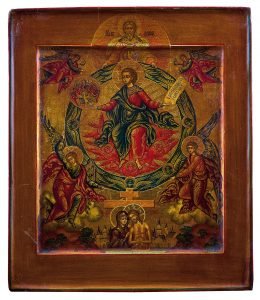 In this article I have been attempting to present some background about how Catholics have come to understand inspiration and the bible. As you have probably already guessed, we do not believe that God dictated word-for-word the Sacred Scriptures and, this will become evident, He did not oversee the various translations of the Bible. People who base their total understanding of the Bible on one of the many translations that exist, are not really representing the intent and content of the Bible.
In this article I have been attempting to present some background about how Catholics have come to understand inspiration and the bible. As you have probably already guessed, we do not believe that God dictated word-for-word the Sacred Scriptures and, this will become evident, He did not oversee the various translations of the Bible. People who base their total understanding of the Bible on one of the many translations that exist, are not really representing the intent and content of the Bible.
Though the human element in the origin of the Bible may and should be regarded as truly causal and creative, yet this human causality differs from the divine causality in extension. To understand this, it should first be noted that the Bible is not a mere collection of more or less related documents on the same general subject matter; it is an organic unity, a totality. God is the author of the totality that is Scripture, whereas the individual human writers are creative causes only of the particular parts of the Bible which they composed. This is not without certain repercussions in the matter of interpreting and understanding the different books of the Bible. The work of the exegete (i.e., an expounder or textual interpreter and especially of scripture) will not be complete when, for instance, he understands Isaiah only as a separate entity; he must also understand Isaiah in its place in the entirety of Scripture. To put it another way, two particular values may be distinguished in the books of Scripture: The value that each book has in itself (and this may well be the only value that the human writer himself perceived, created and communicated) and the plus-value that the same book derives from its rule in the over-all architectonic plan in the mind of God, the author of the entirety of Scripture.
In the light of all this, perhaps the contribution of an individual sacred writer may best be stated in this way: He writes only a part of Scripture, but he affects the entirety of Scripture. An artist, while concentrating on painting a given section of his canvas, is painting directly only that particular area; yet he is thereby altering and modifying the entire work that will eventually result. Similarly the individual writer of a part of the Bible directly composes a limited literary entity; but what he does will affect, modify, and change the total pattern of the final unity, namely the Bible as a whole. Think about this!
